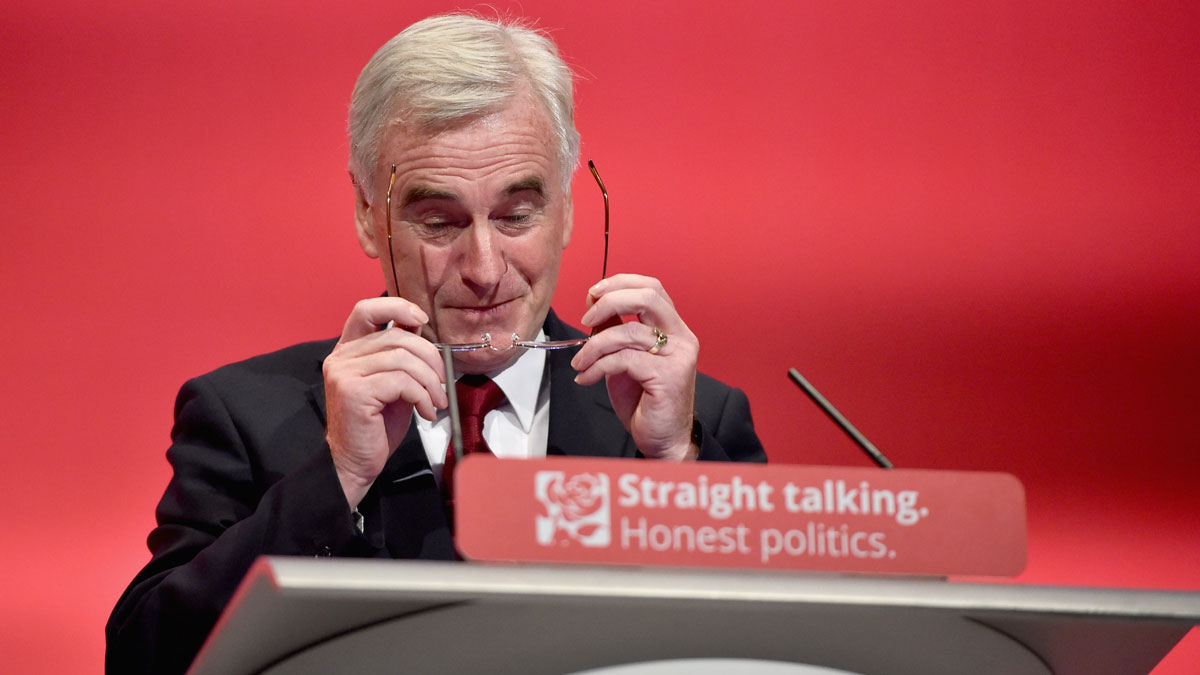How did Osborne's fiscal charter put Labour in such a mess?
Rules requiring a surplus in normal times have been around since the coalition government

A free daily email with the biggest news stories of the day – and the best features from TheWeek.com
You are now subscribed
Your newsletter sign-up was successful
Labour's latest policy misstep, performing an eleventh-hour reversal on a piece of legislation committing parliament to financial responsibility, has caused ructions across the party. But what is the so-called 'fiscal charter' and why has it put Labour in a spin?
What is the fiscal charter?
It's the shorthand name for an update to a piece of legislation known as the Charter for Budget Responsibility. The proposed law sets out rules on public spending to which the Treasury commits itself. The legislation was originally brought in as part of the Budget Responsibility and National Audit Act 2011, one of the first pieces of law introduced by the previous coalition government.
The Week
Escape your echo chamber. Get the facts behind the news, plus analysis from multiple perspectives.

Sign up for The Week's Free Newsletters
From our morning news briefing to a weekly Good News Newsletter, get the best of The Week delivered directly to your inbox.
From our morning news briefing to a weekly Good News Newsletter, get the best of The Week delivered directly to your inbox.
Under the terms of the act, which was also responsible for giving us the lauded Office for Budget Responsibility (OBR), each time the government changes the terms of its guiding charter it must submit it for a new parliamentary vote.
George Osborne did exactly that in the Summer Budget this year and last night MPs voted on the amendments.
What are the changes?
The charter, which has been through a number of changes, includes caps on welfare spending and a commitment to achieve an overall surplus in public spending. That is, ensure the government spends no more than it brings in through tax revenues – by the end of this parliament and then every 'normal' year thereafter.
A free daily email with the biggest news stories of the day – and the best features from TheWeek.com
The OBR will designate that normal conditions are lifted whenever economic growth dips below one per cent, either for any four preceding quarters under review or based on forecasts for the immediate future. The government is then able to spend more to boost the economy, but must set out how it will get back to surplus.
Sky News's Ed Conway explains that the main difference from this latest version of the charter and the previous version (which became law at the start of this year) is that the surplus target now includes investment spending. Previously it only covered 'current spending', effectively day-to-day bills, rather than money used to bankroll infrastructure projects and the like.
What was Labour's official position?
As of Monday, shadow chancellor John McDonnell is officially compelled opposition MPs to vote against the charter, saying that the party needs to be clear in its anti-austerity message and singling out the constraints on investment to stimulate growth. In an article for The Independent, he wrote: "ruling out the possibility of productive capital investment would be extremely foolish".
Leader Jeremy Corbyn called a three-line whip, which means not voting with the party would have constituted an act of direct rebellion.
What about before Monday?
As recently as the weekend McDonnell was reiterating the message he'd given at the Labour conference two weeks' ago that his party would support the policy.
Some Labour MPs were furious at what they see as the latest example of amateurish policymaking from the new leadership. They are also fearful that the decision will rekindle those accusations of fiscal irresponsibility that damaged them so badly at the last election.
McDonnell said he had changed his mind as a result of growing evidence of an economic slowdown. During a heated debate in the chamber prior to the vote last night, he was ridiculed after admitting "no fewer than five times" that the U-turn was "embarrassing", the Financial Times notes. But he added "a bit of humility among politicians does not go amiss".
So what happened at the vote?
George Osborne publicly called for "moderate Labour MPs" to vote with the government "or at least abstain", says the BBC.
In the event, the Daily Telegraph notes that 37 Labour MPs failed to vote, with 21 openly defying the whip and attending the debate but abstaining and 16 being "authorised" absent. The paper sites claims that a number of these absentees, including several shadow cabinet members, were initially "threatened with the sack" for refusing to vote with the leadership, before eventually being told to "just stay away".
The vote passed easily by 320 to 258 – and would have done so without the Labour rebellion. This is arguably the worst aspect of all of this for the opposition: instead of today's news being about the Conservatives using their majority to force through a policy unpopular even with many economists, the headlines are all about its internal issues. George Osborne will be delighted.
-
 Political cartoons for February 16
Political cartoons for February 16Cartoons Monday’s political cartoons include President's Day, a valentine from the Epstein files, and more
-
 Regent Hong Kong: a tranquil haven with a prime waterfront spot
Regent Hong Kong: a tranquil haven with a prime waterfront spotThe Week Recommends The trendy hotel recently underwent an extensive two-year revamp
-
 The problem with diagnosing profound autism
The problem with diagnosing profound autismThe Explainer Experts are reconsidering the idea of autism as a spectrum, which could impact diagnoses and policy making for the condition